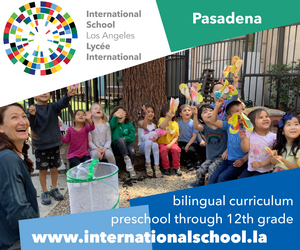Inside Out: Fostering Emotional Intelligence (EI) in Your Child
Teaching children to recognize and express their emotions in healthy ways.

As parents, we take on a number of roles including the most important role as our child’s first teacher — charged with the responsibility of supporting their healthy development – physically, emotionally, and intellectually. Developing a child’s intelligence is not measured by academic outcomes alone. You may have heard the term “emotional intelligence” many times, yet what exactly is it and why is it important for children to develop their emotional intelligence?
Emotional intelligence is defined as a person’s ability to express and manage feelings appropriately while respecting the feelings of others. It’s a skill that children can begin learning at any age.
Dr. Vicki Chiang, PsyD, a mental health professional comments, “After many years of working with parents, I’ve learned that parents (myself included) have a collective goal…to help our children by happy and thrive in life. This means we try our hardest to give them all the opportunities to succeed, to encourage them to get good grades, prepare for exams, and engage them in extracurricular activities such as sports or musical instruments. But is that enough?”
Studies have shown that emotional intelligence can provide a variety of benefits that will serve our children throughout their lifetime. In addition, these studies have shown that emotional intelligence is an asset:
• High EI is linked to high IQ – Children with higher levels of emotional intelligence perform better on standardized tests and tend to have higher grades.
• Better relationships – Emotional intelligence skills can help children manage conflict and develop deeper friendships. Adults with high levels of EI also report better relations in both their personal and professional lives.
• EI is linked to higher adulthood success – A study by the American Journal of Public Health, found that children who were able to share, cooperate, and follow instructions at a young age, were more likely to obtain college degrees and begin working full-time jobs by age 25.
• Improved mental health – Individuals with higher levels of emotional intelligence are less likely to experience depression and other mental illnesses.
If we foster EI in children when they are young, we are setting them up to communicate well, develop strong relationships, and ultimately be leaders in their chosen fields.
According to Dr. Chiang, “Young adults in their mid-twenties are struggling to navigate through the workforce. The fact is the skills they are lacking are not in solving algebraic equations or writing good research papers. Skills that truly lead to success and happiness go well beyond. Emotional regulation skills along with communication, social, and stress management skills are all different pieces that help our children become more empowered and resilient adults.”
As many schools are now teaching children to identify their own emotions and perceive the emotions of others around them, parents play a pivotal role in fostering their children’s EI. Here are several ways to help build emotional intelligence skills:
1. Help your child recognize their own emotions. – Help your children “name” their emotions – sadness, happiness, excitement – then they can start taking ownership. When your child sees that you understand how they are feeling on the inside, they will feel less likely to show you how they are feeling through their behavior.
2. Talk about your own emotions with your child – Tell your children how you are feeling and allow them to perceive it for themselves and demonstrate how your emotions might affect theirs.
3. Recognize the mood or feelings inside your home – The moods and feelings change within a home and parents need to discuss the differences with your children (i.e., if people are visiting, it may feel fun and exciting; or it might be a morning when the house is completely silent). Allow children to recognize the different moods and how their own emotions impact what happens in the house.
4. Recognize the mood or feelings when you go places – Going shopping in a mall will “feel” different than going to a playground. Explore familiar places and discover new places as a way to recognize various moods and feelings experienced – from excitement to nervousness.
Bringing awareness to the emotions and moods that are felt or perceived in a variety of situations can help your child assess the emotional intelligence of each new experience. Helping build emotional intelligence will help your child become a good leader, be able to contribute to a team environment personally and professionally, and more importantly, have the ability to develop strong, connected relationships now and later in life.
To learn more about Stratford School or to schedule a personalized tour go to www.stratfordaltadena.com.



















